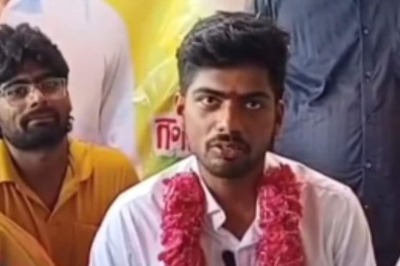
views
The Church in Kerala and India owe much to the late Cardinal Joseph Parecattil, whose birth centenary is being celebrated now, for his eminent thoughts and prophetic visions.He was born in Kidangoor, a small village near Angamaly, on an April Fool’s Day in 1912. But he was not a fool but later became a ‘fool of Christ’ by his ordination and by the consecration as a bishop. He was the third Archbishop of Ernakulam Archdiocese of Syro-Malabar Church. Later he was raised to the eminence of a Cardinal. In fact, he was the first Cardinal of Kerala and the second in India.Justice Bhaskaran Nambiar has said: “Greatness can be a way of life. Greatness is certainly the will of God. Cardinal Parecattil was great in his lifetime, greater after his death. He lived not merely for the present, but also for the future. He had in him divine grace and that is the legacy he has left to mankind.” He had a vision as a Church leader and a mission to fulfil both in the church and in society as a prominent citizen. He had a clear vision for the future of the church and foreseen a peaceful society in the pluralistic milieu of our land. The two famous hospitals like Lisie Hospital in Ernakulam and the Little Flower Hospital in Angamaly are the fruits of his dreams. To care for the sick and the poor he instituted many orphanages and old-age centres. His efforts were to bring harmony and dignity in the community. He even took off his cardinal’s pontifical dress to put on the Indian sanyasi’s saffron dress. As a participant in the epoch-making Second Vatican Council, he argued for an inculturation in the lifestyle and in the liturgy (the way of worship) of the Catholics in India. The Second Vatican Council’s openness towards all cultures in the world and its proposal to the use of local languages and styles for the liturgy to be adapted had the back-up of Cardinal Parecattil. He was involved in the drafting of certain important documents of the council. He was convinced that Christianity can contribute to the fulfilment of the spiritual heritage of India, and also that Christianity can be enriched by the rich heritage of Indian traditions. This attitude of him was criticised within the Indian hierarchy itself. He answered, “If Christianity can take certain elements from the pagan religions in Rome, why cannot the Indian Church adapt certain good elements from the highly spiritual Indian heritage. He even experimented with an Indian Mass at his initiative. His Indian way of life and the process of Indianisation of the Church made him a champion of tolerance and of inter-religious dialogue. Even RSS found him as their friend and they invited him to speak in their gatherings. Then chief of RSS Dev Arez lauded Cardinal Joseph Parecattil for his openness to other religions, especially to Hinduism. He was convinced that Christianity in India is of first century and its life and light has to be knitted with the Indian fibre, not with any western or foreign elements. That’s why he was against the chaldinisation of the Syro-Malabar Liturgy. A liturgy that cares for the need, tasks, tastes, interests, concerns, hopes and aspirations of the worshipping community was in the mind of the Cardinal. As the Kerala Church celebrates the birth centenary of Cardinal Joseph Parecattil, one must cherish the memory of an Indian Cardinal with firm faith in the sacred heart of Jesus, an administrator with farsightedness, a theologian with an Indian outlook, a pastor with a humble heart and man of vision and an ardent missionary of love and service. The author is the chief editor of ‘Satyadeepam’ magazine. The views in the article are the author’s own




















Comments
0 comment